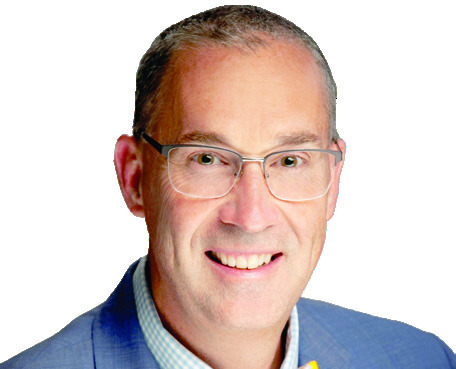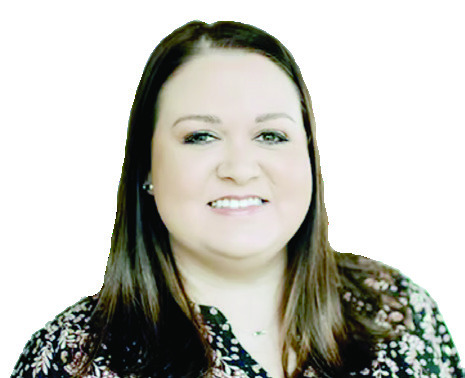Spending countless hours over the years breaking down cardboard boxes has been both a tedious and rewarding experience for me.
At first glance, it may seem like a mindless task, but it has become a therapeutic ritual that I’ve come to appreciate. There’s something oddly satisfying about the repetitive process of cutting up and flattening boxes, stacking the strips of cardboard together and preparing them for recycling.
No matter how mundane the task, there usually is a productive end benefit. This chore allows me plenty of time to think about things. Some lessons have been revealed to me while pondering about the stages of life and how our journey can resemble the life cycle of a cardboard box.
As all parents do, I often think about my children and family transitions past, present, and future. My adult children are busily pursuing their goals and dreams out in the world with families of their own.
I speculate about the merits and detriments of my single-parenting style and the challenges we faced as a family while they were young. My children spent much of their time during their middle and high school years at my side helping out after school and on school breaks volunteering at the food pantry.
Following the receipt of food drive donations, I would enlist their help to sort, categorize and store the food. Their “playground” consisted of aisles of shelving and stacks of cardboard boxes. In every case, the project required moving cans of soup, beans, vegetables, and dry goods from one cardboard box and relocating them into another cardboard box.
Sorting and arranging the groceries had a constructive and meaningful conclusion. Eventually reaching the final stage of the process, an outgoing box full of tasty food resources was destined to leave the agency and find a new home in the kitchen of a food insecure family.
My sons also participated with handing out the food directly to visitors when their schedules allowed. Although these “chores” and responsibilities may have appeared to be very unpopular activities to fill spare time, my children grew up in an environment nurtured by a sense of social responsibility.
They saw that it was not enough to be aware of the struggles of others. They witnessed in concept that it is our duty to take action and extend a helping hand.
They witnessed that service is not just an act, but a way of life.
Volunteering from a young age carries with it a great deal of merit in setting the stage for a lifetime of personal growth, empathy, and commitment to making a positive difference. Through volunteering, young individuals discover their passions, strengths and values.
They can be exposed to view various causes, from environmental conservation to assisting the elderly. They can identify the areas that resonate with their beliefs. This self-discovery process empowers them to develop a sense of purpose and a strong personal identity.
As they grow older, the early exposure to volunteering helps shape their career choices, leading them to pursue professions or activities aligned with their desire to make a difference in the world. Volunteering provides an excellent platform for young people to cultivate the practical skills gained through teamwork and communicating with others.
Engagement offers young individuals exposure to different cultures, social classes and perspectives. The expanded social awareness can enrich their understanding of the world, enabling them to approach various situations with openness, curiosity and respect.
As adults, they might advocate for social justice, fostering unity and understanding within their communities.
Quoting my son when I asked him about growing up in a volunteer setting he stated, “Growing up in Cassville, I was grateful for the opportunity to learn about serving others through the food pantry. It shaped my worldview and showed me the compassion of Jesus, who said that He came not to be served, but to serve. He also said that if we are faithful in little, He will entrust us with more. Serving in middle and high school maybe felt like a little at the time, but it helped prepare me to continue to orient my life around serving others now through a ministry sharing about Jesus with people from distant nations.”
Encourage persons young and old to encounter a sense of service as a way of life. It is as simple as looking at the journey of a cardboard box. The box starts out flat and lifeless but eventually takes shape and is given a purpose.
Although the box is empty at first, once connected to a goal and filled up, it will function and serve as an important tool. The box will not remain stationary, but instead will be transported to a new destination.
The stage is set for unleashing more potential productivity. Every step taken is an opportunity to make a difference in the lives of others.
Children are similar to the box. They begin as a blank slate, but while they grow up take shape and seek purpose and direction.
What choices they select to include in their toolbox will assemble a trajectory of potential. A universal meaningful trajectory revolves around service and selflessness.
Volunteering can pour future generations into vessels capable of significant transformation.
Janet Mills is the director of Cassville Pantry, located at 800 W.
10th St. in Cassville. She may be reached at cassvillepantry@gmail. com or 417-846-7871.





